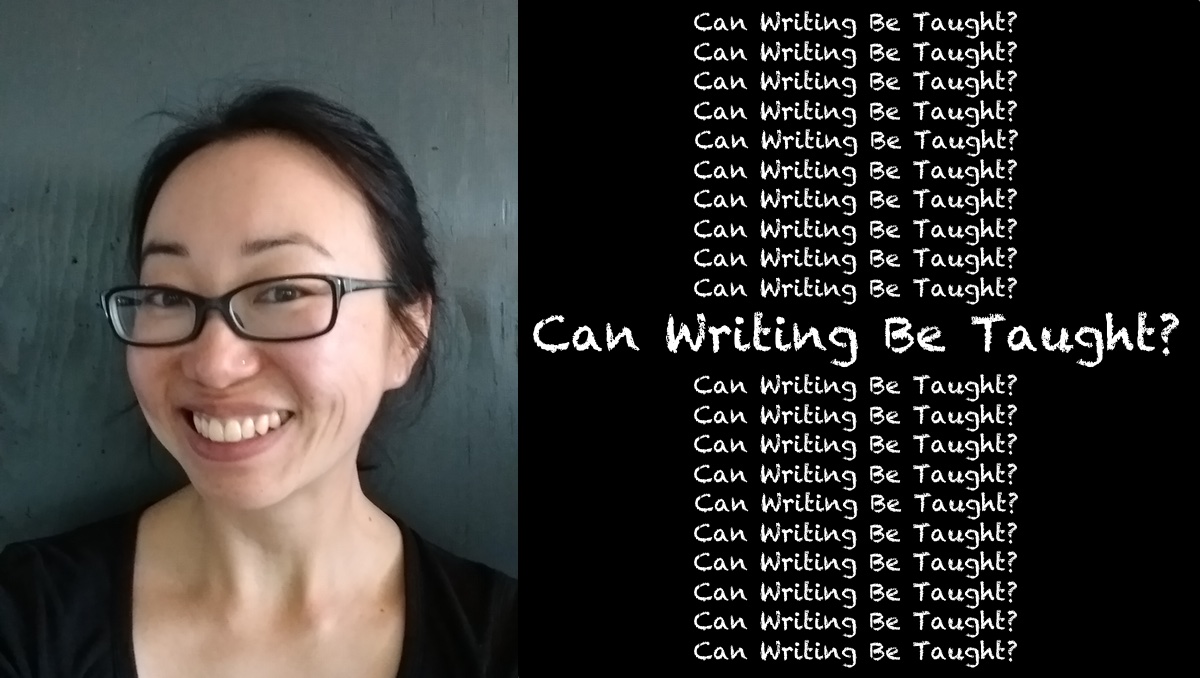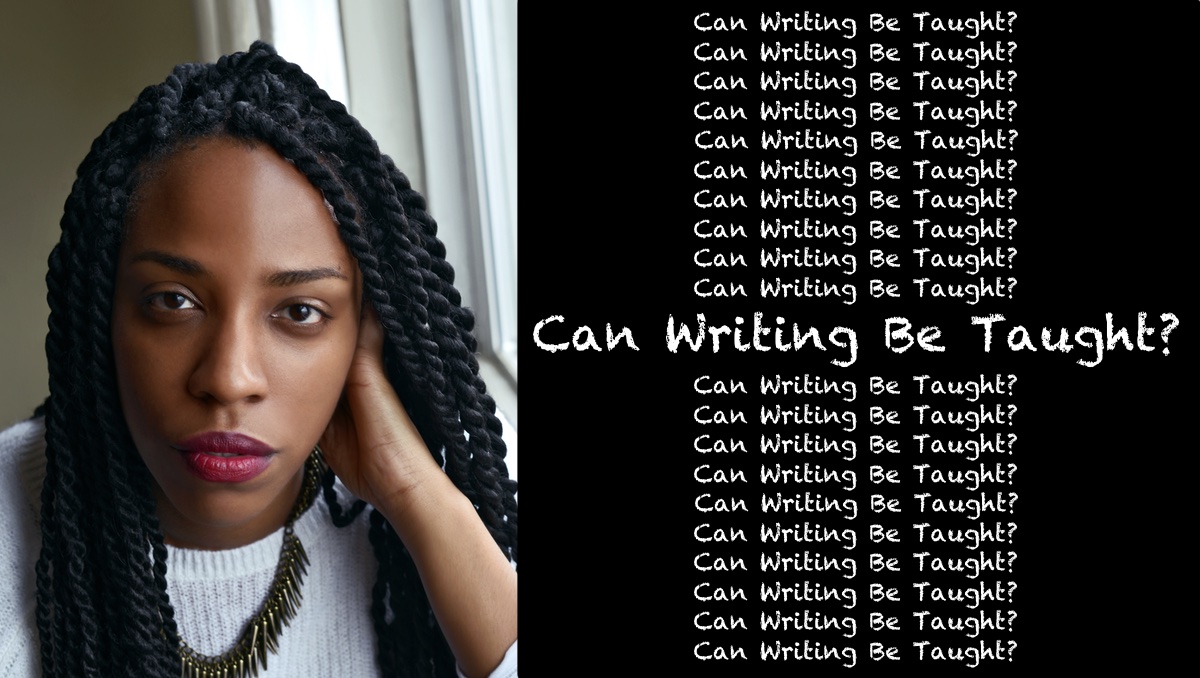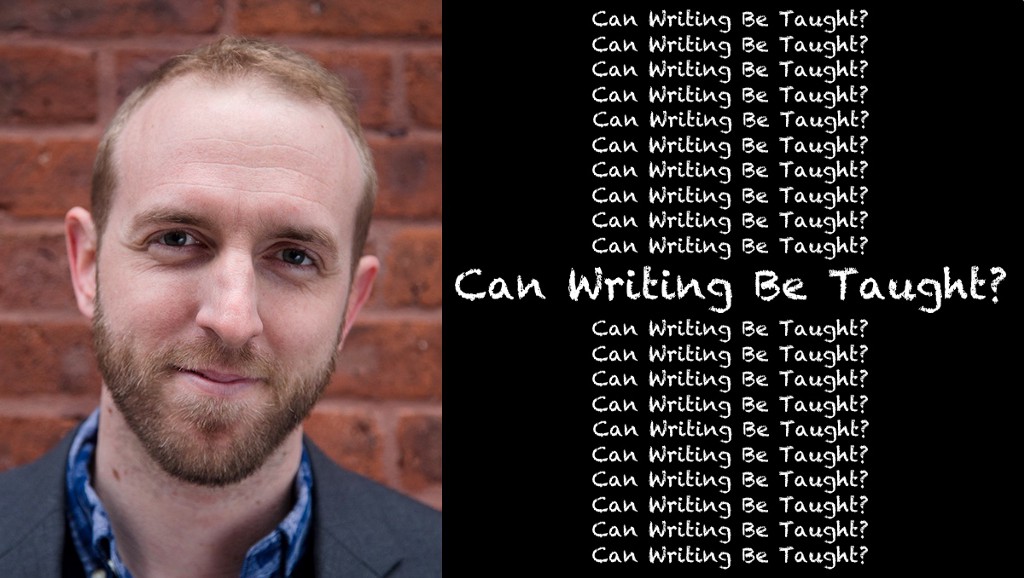interviews
Why Kanishk Tharoor Draws Plumbing Diagrams in Writing Class
10 questions about teaching writing with the author of “Swimmer Among the Stars”

I n our monthly series “Can Writing Be Taught?” we partner with Catapult to ask their course instructors all our burning questions about the process of teaching writing. This month we’re talking to Kanishk Tharoor, author of the story collection Swimmer Among the Stars. Tharoor is also a contributor to The Guardian, The New Yorker, The Los Angeles Review of Books, The Paris Review, and others, and the radio presenter for the BBC’s “Museum of Lost Objects.” He’ll be teaching a six-week advanced fiction workshop on “Writing the Other” at Catapult’s New York headquarters, starting October 9.

What’s the best thing you’ve ever gotten out of a writing class or workshop as a student?
The American creative writing workshop can be a strange place for those of us who write somewhat unconventionally or about subjects removed from contemporary American life. There’s always the risk of running up against puzzlement, disdain or, worst of all, indifference. So I was always grateful to find colleagues willing and even eager to meet my work on its own terms.
What’s the worst thing you’ve ever gotten out of a writing class or workshop as a student?
When you spend so much time immersed in the work of your peers, you can — without even meaning to — find your writing veering in the same direction as others. It’s like when riding a bike, you find yourself drifting towards something that’s caught your eye (admittedly, I’m not a great cyclist). Try to stick to your own lane.
We wouldn’t expect everybody to have a sculpture or screenplay in them, or for that matter for everybody to have a home run in them or a chicken soup or a cantilevered bridge.
What is the lesson or piece of writing advice you return to most as an instructor?
I often repeat a metaphor taught to me years ago, about how the flow of prose is much like the flow of water through pipes — the pipes need to bend and turn for the water to flow properly and not get caught up in eddies, just as we need judicious variation in narrative to maintain the reader’s attention. My students seem to find my diagrams of plumbing not totally outlandish. I’ve no idea if that’s really how pipes work, but I do think it’s true for prose.
Does everyone “have a novel in them”?
I don’t like the phrase (we wouldn’t expect everybody to have a sculpture or screenplay in them, or for that matter for everybody to have a home run in them or a chicken soup or a cantilevered bridge). A good novel comes out of talent and intelligence and curiosity, and not everybody will have those qualities in equal measures.
Would you ever encourage a student to give up writing? Under what circumstances?
I can think of only two quite different circumstances in which I would do that: 1) if writing is making it impossible for the student to support her family or meet other material responsibilities or 2) if the student was for whatever reason committed to writing fiction that was hateful about or malicious to vulnerable people.
What’s more valuable in a workshop, praise or criticism?
Praise, and not because we can all use a bit of affirmation once in a while. I think it’s quite important in the workshop environment for criticism to come out of praise. I make my students focus at the beginning of workshops on what’s effective about a given piece. Finding positives can be a lot harder than tearing somebody’s work to shreds, but it encourages students to think more deeply about a piece of writing and the habits of a writer. The criticisms and suggestions that follow later in the workshop tend to be more rigorous and helpful.
Should students write with publication in mind? Why or why not?
If it helps motivate you to write, then that’s fine. If it conditions how you write, then you’re probably thinking too much about the destination and not enough about the way there.
Finding positives can be a lot harder than tearing somebody’s work to shreds, but it encourages students to think more deeply about a piece of writing and the habits of a writer.
In one or two sentences, what’s your opinion of these writing maxims?
- Kill your darlings: Sure, be a ruthless editor and prune what’s excessive and tangential in your manuscript. But you should still be able to take pleasure in what you’ve written and not be so suspicious of your own enthusiasm that every lovable sentence gets sent off to the guillotine.
- Show don’t tell: No, firstly because it’s a false dichotomy; its very difficult to do either well without doing some of the other. And secondly because I’ve often thrilled at beautiful, powerful stretches of exposition. One of the great pleasures of fiction is letting a good writer tell you what’s what.
- Write what you know: Emphatically, no. Write about what fascinates you and what you think is important, and use fiction as a bridge to the wondrous, desperate world beyond you.
- Character is plot: “…and plot is character.” The maxim suggests that there’s some kind of perfect equilibrium we should strive for in fiction between events and characterization. I don’t think that’s the case. A successful piece of fiction doesn’t need to tick every box. I’ve read wonderful works where very little happens and likewise read wonderful works where individual psychology is not at all important.
What’s the best hobby for writers?
I find watching sumo wrestling transporting and inspiring. If a 300-pound behemoth can swivel like a ballerina and lure his enemy into empty air, I can finish this chapter.
What’s the best workshop snack?
A former mentor introduced me to the Italian combination of red wine and taralli, so I’ll always associate fiction workshops with olive-oil cookie crumbs and wine stains.









